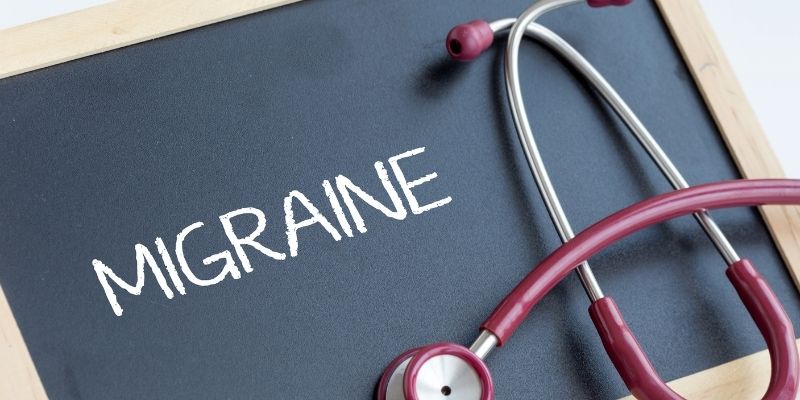Why do we feel the urge to eat certain foods?
When we have an overwhelming want for certain foodstypically snacks high in sugar, salt, or fatits called food cravings. Almost everyone has them sometimes. When dealing with these cravings, it might be hard to say no to tempting foods like chips and chocolate. But what causes these desires, and why do we feel them?
This article will explore the reasons behind food cravings, including hormone imbalances and emotional triggers, and offer practical advice on handling them.
What Are Food Cravings?

An intense need for a particular food fueled more by mental than physical need, is known as a food craving. Cravings, in contrast to actual hunger, which occurs when your body needs energy, are usually connected to variables in your mind or body.
Sugary, fried, or processed meals are often the targets of cravings because of their high caloric and nutrient density. Although it is natural to crave different foods sometimes it may indicate a problem with eating habits or health issues.
Reasons Behind Food Cravings:
Listed below are some of the most common reasons behind food cravings:
Hormone imbalance and Food Cravings
When it comes to controlling appetite and desires, hormones are essential. Women experience hormonal changes more often than men like during pregnancy, menstruation, or times of stress, which may set off appetites for certain foods.
Hormones like leptin and ghrelin control our appetite levels. Increased cravings for high-calorie foods may result from imbalances in the hormones leptin (which regulates fullness) and ghrelin (which stimulates appetite).
Levels of Serotonin: Low serotonin levels, often linked to stress or lack of sleep, can trigger cravings for carbohydrate-rich foods. These foods naturally increase serotonin production in the brain, offering a temporary mood boost.
Cortisol: Cortisol, the stress hormone, can increase hunger and cravings, especially for high-fat and sugary foods, as a way for the body to cope with stress in the short term.
Stress eating
What people eat is often impacted by their emotional state. Feeling down, lonely, or bored, people typically reach for food. This is one of the leading causes of food cravings.
When we're feeling down, our bodies release dopamine, the "feel-good" hormone, so we often seek fatty and sugary foods.
In times of stress, the body searches for rapid energy sources, such as sweet meals, to fight off the perceived danger.
Issues with Proper Diet
Cravings for certain foods might indicate a nutritional imbalance or deficit in the body.
A magnesium deficiency can cause an insatiable appetite for chocolate, which is a symptom of a mineral deficiency that affects the proper functioning of muscles and nerves.
Iron deficiency can cause pica, a disorder characterized by an intense desire for red meat or even inanimate objects like ice.
An electrolyte imbalance or dehydration could cause an intense craving for salty foods.
While hunger pangs could be a sign that you need to restock on nutrients, they can also be deceiving. For instance, if you're feeling lethargic, you might be seeking sugary items even when your body doesn't require sugar.
Chemical Reward in the Brain and Addiction-Like Behavior:
Some foods, particularly those rich in sugar and fat, can trigger the reward system in the brain. This makes you feel good and makes you want those foods more since dopamine is released.
A "high" feeling from eating certain foods, known as dopamine "high," might become addictive if consumed frequently enough. Because of this loop, it becomes more difficult to control the desire for junk food.
Habitual and Environmental Factors
There are a variety of habits and environmental factors that can set off food cravings.
Visual Cues: Even if you're not hungry, seeing food-related ads or social media postings might trigger cravings.
When you're in a social setting and other people are eating a particular meal, you start craving it too.
Due to patterns or boredom, cravings happen at specific times of day, like late at night.
Elements Related to the Mind
Other mental variables that could contribute to cravings include:
- Strict dietary restrictions could cause strong desires for "forbidden" foods.
- Cravings for ice cream after a long day result from conditioned responses, which occur when specific foods are linked to pleasant memories.
Typical Food Cravings and What They Indicate

Cravings for certain foods may be an indication of your emotional or nutritional needs. Let's take a look at some common cravings, what might be causing them, and some healthy ways to satisfy them:
Craving | Possible cause | Healthy substitutes | ||
| Stress, anxiety, or dehydration | Try homemade popcorn, lightly salted almonds, or olives. | ||
Sweet foods | Low serotonin levels or energy dips | Enjoy Greek yogurt with fresh fruit and a drizzle of honey. | ||
Fried Foods | Emotional comfort or unhealthy fat cravings | Sweet potato fries baked with olive oil or toasted nuts. | ||
Red meat | Protein or iron deficiency | Include beans, lentils, or fortified grains in your meals. |
If you want to satisfy your body's requirements without sacrificing your health, you need to figure out what's triggering your desires.
Stop Obsessive Food Cravings Now!
Heres how you can control your obsessive food cravings:
Drink plenty of water.
Dehydrating may provoke symptoms similar to hunger or desire. One way to control those pesky cravings is to drink water frequently throughout the day.
Ensure a Balanced Diet
If you eat food rich in protein, carbs, and healthy fats, it will lead to consistent energy and fewer cravings.
Make Mindful Eating a Habit
Being mindful allows you to differentiate between physical hunger and emotional desires. Pause for a second and ask yourself if you're hungry before grabbing that snack.
Discover More Healthful Options
Get what you want while making better choices. Pick baked items over fried nibbles or entire fruits over sugary munchies.
Get a Good Night's Rest
Cravings for unhealthy meals are amplified when sleep deprivation interrupts hormones that regulate hunger. The recommended amount of sleep each night is 7 to 9 hours.
Deal With Emotional Problems
Try exercising, reading, or chatting to a friend instead of eating when stressed.
Things to Consider Before Seeking Assistance
If food cravings persist, interfere with daily living, or lead to problematic eating habits, it is recommended to see a professional. Seeking help from trained professionals like a nutritionist or a therapist can help with urge management by identifying causes and providing solutions.
Summary:
Many things, such as hormones, emotions, and diet, contribute to the complicated phenomenon of food cravings. While it's natural to experience cravings now and then, learning what sets them off might help you control them better. You may improve your relationship with food and lessen the influence of cravings by establishing healthy eating habits, taking care of your emotional needs, and choosing your food with awareness.










